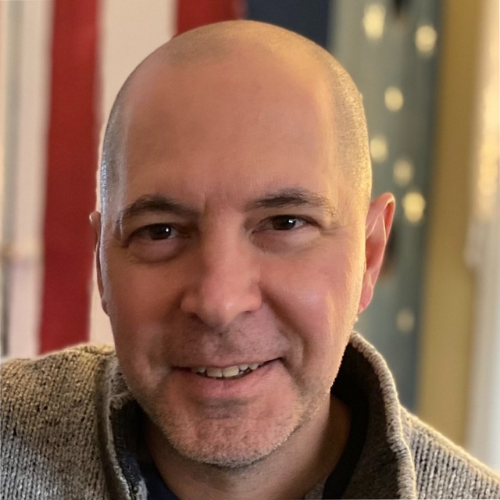 Stephen Dertinger
Stephen Dertinger
Litron Laboratories
Tell us a bit about your scientific and educational background.
I was fortunate to have a series of excellent and encouraging science teachers. In high school, Ernie Ladd taught an A.P. biology course that really inspired me to think about a career in the sciences. Importantly, he took the time and interest to point out a newly created biotechnology program at the Rochester Institute of Technology.
At Rochester Institute of Technology, Professors Jean Douthwright and Irene Evans used their new program to teach students the fundamentals of biological sciences and to introduce us to the exciting molecular biology techniques that were just starting to come into wide practice. They really helped me understand a career in science and the associated challenges of keeping up with advances would be a rewarding choice.
Fortunately, my education continued in important ways at my first job out of college. I was hired as a technician by Andrew Tometsko (AT) at Litron Laboratories. I have so many fond memories and learnings from this time, too many to share here. Let me provide one noteworthy, early lesson: “If it’s real, it’s reproducible” (AT, circa 1990). What more is there to say?!
I circled back for additional formal training in the University of Rochester’s toxicology program. There, I had the great privilege of being mentored by Thomas Gasiewicz, who ran a world-renowned AhR receptor/dioxin lab. Among many other things, Tom instilled in his students the value of orthogonal approaches to solve stubborn puzzles.
What do you see as the greatest value or most rewarding aspect of your scientific work?
Together with my amazing co-workers at Litron, I’ve enjoyed working on assays that seek to more efficiently and comprehensively evaluate chemicals for genotoxic potential. This work has introduced me to fantastic colleagues and collaborators that always challenge us to do more. I love this type of environment that constantly asks us to do more, and expects continuous improvement. Kaizen!
What initially drew you to the EMGS?
The scientific content of the annual meetings is always compelling. There is so much important information presented, information that ends up influencing how we do things here at Litron on a daily basis. Also, to this day, EMGS meetings have provided a key mechanism for us to receive knowledgeable experts’ feedback on our ongoing lines of investigation.
How has EMGS impacted your professional development?
EMGS and sister societies is where I can count on networking with so many of the leaders in the field of genetic toxicology. EMGS has provided such a welcoming environment, and it really does a great job encouraging discussions about next steps, useful collaborations, etc.
The problem with a list is that it will be incomplete, but this is where I’ve met and gotten to know so many leaders in our field. For instance, this is the venue where I got to know, and began working with Jim MacGregor, John Heddle, Makoto Hayashi, Bob Heflich, Vasily Dobrovolsky, Ray Tice, David Kirkland, Maik Schuler, Kristine Witt, David Lovell, Leon Stankowski, Anthony Lynch, Paul White, Francesco Marchetti, George Douglas, Carole Yauk, Stefan Pfuhler, Andreas Zeller, George Johnson, Rosie Elespuru, Stephanie Smith-Roe, Bevin Engelward, Errol Zeiger, George Hoffman, the list goes on. My kids would say I’m flexing, knock it off. No, I’m sharing this impressive, incomplete list of people just to say this was only possible due to EMGS and the ecosystem they created and have maintained. It has enabled me to work with a truly amazing group of people, and this has enabled our very best work.
What advice would you offer to students or early career investigators?
I’ll provide two answers for the price of one. First: read, then read some more. I’m not just talking about your exact scientific area, I mean broadly. Our most useful advances all originated from some insight that came from some other, non-genetic toxicology discipline. Second: attend EMGS annual meetings. The networking and mentoring opportunities are there, lean in and take advantage of them. The people there want to help, they want to see you succeed.
 2025 EMGS Program Chair
2025 EMGS Program Chair